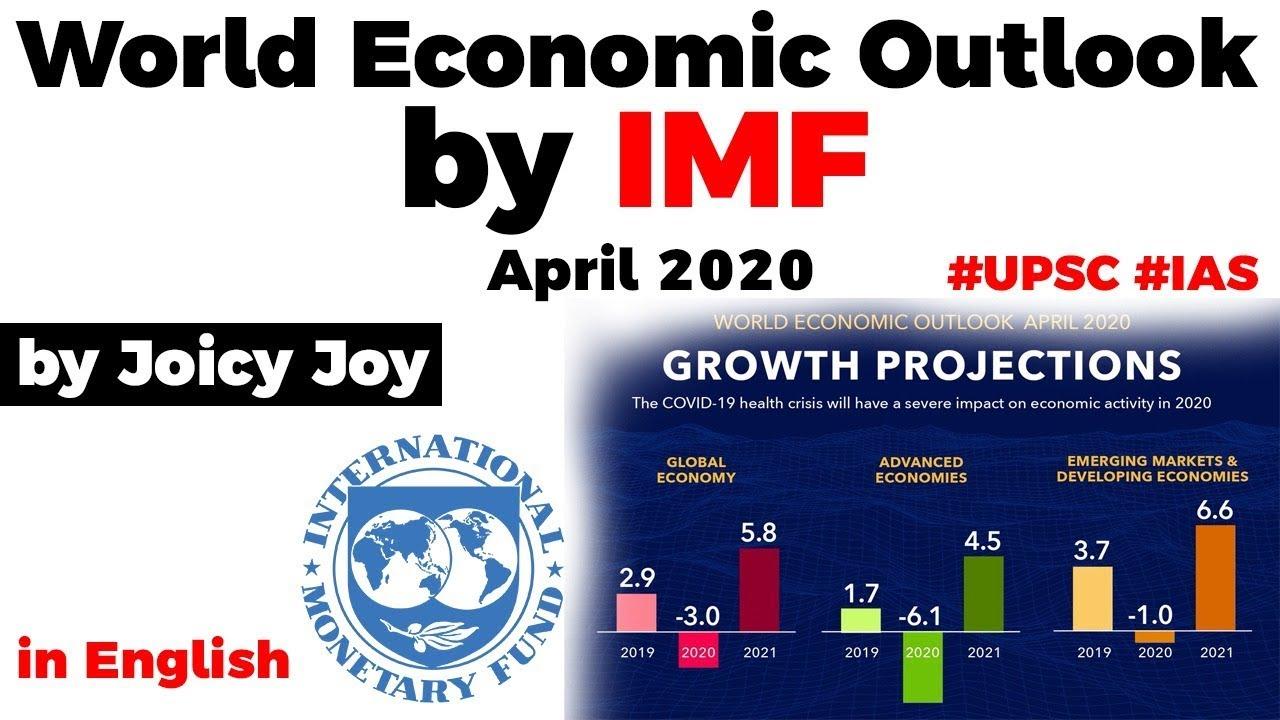Table of Contents
CURRENT AFFAIR
- Recently, the International Monetary Fund (IMF) has released its World Economic Outlook (WEO) report.
DETAILS
- The Covid-19 pandemic is having a severe effect on the world economy.
- It is expected to cause a -3% change (i.e., a contraction) in global output in 2020, which is much worse than the 2008-09 financial crises.
- Case of India:
- India’s growth is expected to dip to 1.9% in 2020 and rebound to 7.4% in 2021.
- India’s growth projection for 2020 is 3.9% less than what was projected for the country in the January update to the WEO while its rebound in 2021 is 0.9 % higher than the January projection.
Growth Projections
- Emerging Asia:
- Emerging Asia is projected to be the only region that grows in 2020, at a rate of 1.0% – still more than 5 percentage points below the previous decade’s average.
- In China, where the coronavirus’s impacts were first recorded this year, first quarter economic activity could have contracted by 8% year on year. China is projected to grow at 1.2% in 2020 and 9.2% in 2021.
- Apart from India’s modest 1.9% in 2020, Indonesia is expected to grow at 0.5%, while others in the region experience contractions.
- Advanced economies:
- Advanced economies will have an output change of -6.1% (i.e., a contraction) in 2020 followed by 4.5% in 2021.
- The U.S. is projected to contract by 5.9% in 2020 and grow by 4.7% 2021.
- The Euro area, will contract by 7.5% in 2020 and grow by 4.7% 2021.
- Impact on Global GDP:
- The cumulative loss to global Gross Domestic Product (GDP) over 2020 and 2021 from the pandemic crisis could be around 9 trillion dollars.
- Assuming that the pandemic fades in the second half of this year, with containment efforts gradually easing up, the world economy is projected to grow at 5.8% in 2020 as economic activity normalizes, aided by policy.
- If the pandemic does not recede in the second half of 2020, global GDP would fall an additional 3% in 2020.
Measures to combat the impact
- Policymakers have to make targeted fiscal, monetary and financial sector interventions to support impacted households and businesses.
- Fiscal measures should be two-fold:
- Cushioning the impact on the most-exposed households and businesses
- Reducing firm closures , i.e., preserving economic relationships.
- Monetary stimulus by large central banks and liquidity facilities to reduce systemic stress
- Strong multilateral cooperation – help financially constrained countries facing twin health and funding shocks, and for channeling aid to countries with weak healthcare systems.
World Economic Outlook
- WEO is a survey by the IMF that is usually published twice a year in the months of April and October.
- It analyzes and predicts global economic developments during the near and medium term.
Latest Burning Issues | Free PDF






















 WhatsApp
WhatsApp